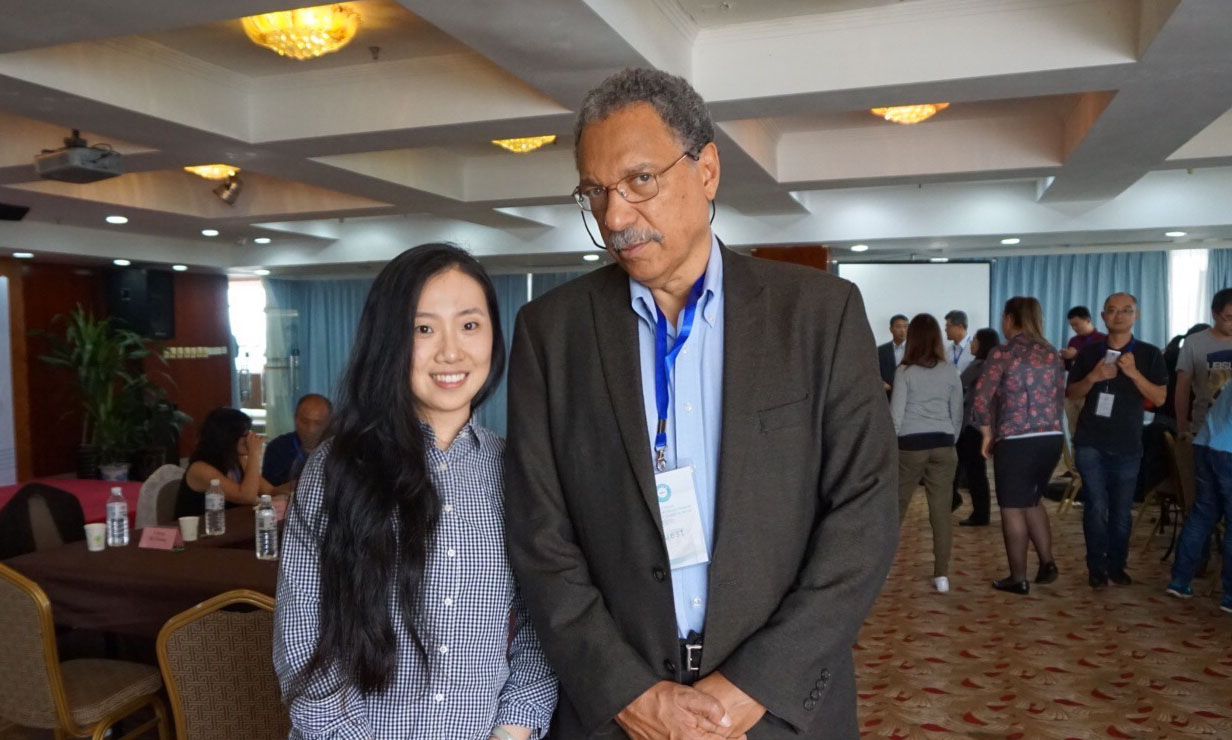Forward by Daniel Pauly:
The event held in the modern city of Xiamen, documented below, and at which several colleagues from UBC also participated (William Cheung, Vicky Lam, Mimi Lam, and Tony Picher), was the main reason for my recent trip to China. However, I took this opportunity for a presentation at the very modern Third Oceanographic Institute in Xiamen, and for a one day-visit to Greenpeace China, in their Beijing Headquarters. Greenpeace China has only 4 staff working full time on ocean and fisheries issues, and even though they are motivated and well informed, the challenges they face seem overwhelming. On the other hand, their more numerous colleagues working on energy and pollution clearly face even worse challenges, as evidenced by the foulness of the air on that day. Altogether, a very instructive trip.
Following essay by Yuwei Wang, Xiamen University
From November 10-12, 2015, an international event on “Sustainability of China’s Fisheries [in a] Fast Changing World” was held in Xiamen, Fujian Province, China. The primary goal of this forum, organized by Professor Bin Kang, of Jimei University, was to enable the fisheries, mariculture and marine conservation communities in China to interact with international colleagues. Following a day of formal presentation starting with a keynote by Dr. Daniel Pauly titled “Why reliable catch estimates matter: global comparisons of trends in marine fisheries”, the forum concluded with three workshops, devoted to the issues of each of these communities. I joined the workshop on the management of China’s domestic marine fisheries, which was led by Drs. Daniel Pauly and Chang IK Zhang, an influential researcher from (South) Korea.
Most workshop participants were concerned about the decline of the marine fisheries resources of China, particularly in the East China Sea, which for historical and political reasons, is a very sensitive area. Thus, international cooperation between the three countries exploiting the East China Sea, China, Japan and Korea is required, notably to share data and conduct joint assessments of the stocks they all exploit. Dr. Zhang, building on his broad international experience, strongly argued that a regional fisheries management organization (RFMO) is needed that would coordinate joint research activities and the organize the required data sharing, while maintaining an appropriate degree of confidentiality with regards to sensitive issues.
However, some Chinese researchers pointed out that official data and reports are, in China, kept very distinct from the various datasets gathered and the analyses published by scientists who, moreover, are not provided enough support for them to collect data and perform stock assessments. The workshop participants agreed that this policy of relying exclusively on secret or semi-secret ‘official’ data and reports while ignoring broadly available and vetted scientific data and analyses may have the further decline of Chinese fisheries as outcome.
This bleak prospect is aggravated further by the Government not having earlier engaged with small-scale fishers/boat operators, whose enormous number (and hence fishing power) it is therefore unable to stem, at least currently. Dr. Zhang, in this context, expressed surprise that, in contrast, e.g., to Korea, the majority of Chinese coastal fishers are usually not member of associations. He suggested that in fact, without these fishers being part of association that could control their activities and mitigating the damage they do (indirectly, e.g., through peer pressure) is nearly impossible. It is thus encouraging that the Chinese government has recognized this problem, and has begun, in some provinces, to encourage the self-organization of coastal fishers.
Even if the issues of fisher organization and data reliability were solved, and regular stock assessments were performed for the major resources species, the question of the management regime to adopt would still remain. Should a quota system be introduced in China? How should quota be set and allocated? Should quotas be transferable?
There are successful and failed examples of quota management all around the world. The US quota system appears to work, and its judicious use has led to a rebuilding of previously overexploited stocks on most of that country’s fishing grounds. The quota system also currently works well in Iceland, but it experienced serious disruptions. Iceland has an individual transferable quota (ITQ) system which started in 1990, notably for cod fishing. However, most of these quotas (remember: they were transferable!) were gradually acquired by a Wall Street-based US corporation which went bankrupt in the financial collapse of 2008, thus forcing the Icelandic Parliament to pass legislation to repatriate quotas that should never have left the country.


